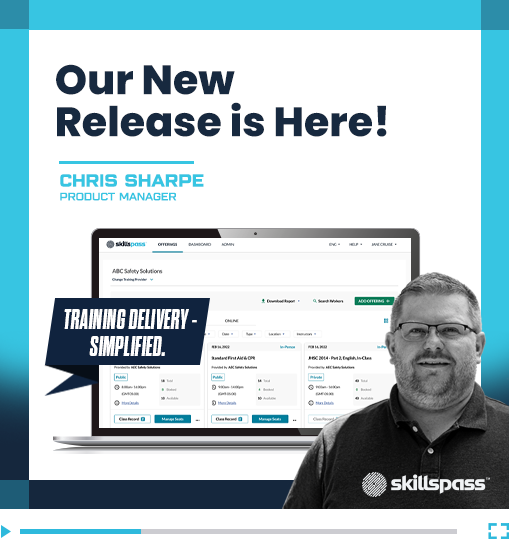

The Canadian healthcare sector is undergoing a major transformation, driven by both opportunity and pressing challenges. Among the most critical issues is the growing shortage of healthcare professionals, including doctors, nurses, and support staff, which has been further strained by rising patient demand and an aging population. Many healthcare systems around the world, including Canada’s, are working to integrate internationally educated healthcare professionals—individuals who bring valuable experience but may require tailored training to align with regional policies, standards, and guidelines.
This shift is not a passing trend but a long-term evolution. Studies indicate that the global healthcare eLearning market is projected to reach over $11 billion by 2028, while the VR in healthcare market is expected to grow at a compound annual growth rate (CAGR) of 32.2% from 2023 to 2030. Hospitals, clinics, and pharmaceutical companies are now investing heavily in digital learning platforms to ensure that their workforce remains proficient in the latest medical practices and innovations.
A recent study titled “Factors Influencing the Effectiveness of eLearning in Healthcare” examined the key elements that contribute to successful digital learning. Researchers identified six primary components that significantly impact the efficacy of digital healthcare training:
Among these, ‘success’ was identified as the most critical factor, reinforcing the need for well-structured digital training programs that align with desired learning outcomes.
Virtual Reality is playing an increasingly important role in healthcare training, offering immersive and interactive learning experiences. In nursing education, VR simulations enable students to engage in realistic clinical scenarios, allowing them to practice procedures and decision-making in a risk-free environment. A systematic review and meta-analysis published in BMC Medical Education found that VR interventions in nursing education led to significant improvements in knowledge acquisition, skill development, and learner satisfaction compared to traditional teaching methods.
While eLearning and VR are powerful tools, they are not a silver bullet for healthcare training. The most effective training programs incorporate a blend of digital education and hands-on, practical experience. While clinical skills and emergency response scenarios often demand in-person practice that can’t be fully replicated digitally, eLearning and VR are powerful complementary tools. Rather than replacing traditional training, they enhance and reinforce hands-on learning by providing flexible, immersive, and repeatable learning experiences.
Blended learning models, which combine digital coursework, VR simulations, and in-person training, have been shown to improve knowledge retention and skill proficiency. By integrating these technologies into a broader training framework, healthcare organizations can develop well-rounded professionals who are better prepared for real-world situations.
Furthermore, using digital learning for foundational knowledge allows in-person training to focus on complex, hands-on procedures, making the most efficient use of both digital and practical learning methodologies. This hybrid approach ensures that healthcare professionals receive comprehensive training that is both scalable and deeply immersive.
The adoption of VR in healthcare training is expanding rapidly. The global VR in healthcare market was valued at approximately USD 3.01 billion in 2022, and its rapid growth highlights the increasing recognition of VR’s potential to enhance medical training and patient care.
By integrating VR into comprehensive training programs, healthcare institutions can offer experiential learning that complements traditional educational methods. VR-based simulations provide trainees with hands-on practice in a controlled environment, improving their confidence and competence before interacting with actual patients.
Digital training offers numerous advantages over traditional in-person instruction:
The global healthcare industry is increasingly recognizing the importance of digital competence and has initiated several large-scale projects aimed at preparing health workers for a technology-driven future.
One notable initiative is the Sustainable Healthcare with Digital Health Data Competence (Susa) project, a collaboration of 12 European universities. This program focuses on developing the digital skills of health professionals, including the use of electronic health records (EHRs), telemedicine platforms, and data analysis tools. The initiative is expected to produce over 6,500 graduates and 660 digitally proficient mid-career professionals by 2025. This effort demonstrates the growing recognition that digital competence is essential for improving healthcare delivery across the globe.
Another significant example comes from the World Health Organization (WHO), which launched the Digital Health Strategy in 2020. This strategy aims to promote the widespread adoption of digital health technologies, including e-learning platforms, telemedicine, and digital health records, in low- and middle-income countries. The WHO emphasizes the importance of building digital literacy among healthcare professionals to improve the efficiency and accessibility of healthcare services. Through initiatives like this, the WHO seeks to ensure that healthcare workers worldwide have the skills to leverage technology in improving patient care.
In addition to these international initiatives, pharmaceutical companies are also investing heavily in digital training and technology adoption to support their workforce. For example, companies like Johnson & Johnson and Merck have implemented comprehensive AI literacy programs for tens of thousands of employees. These programs focus on the integration of artificial intelligence and data science into drug development, regulatory compliance, and operations. These efforts are crucial in preparing the next generation of healthcare professionals to operate within an increasingly digitalized healthcare ecosystem.
Furthermore, countries like Canada and Australia are implementing national frameworks to integrate digital competencies into healthcare training programs. Canada’s Digital Health Innovation Program, for example, is designed to train healthcare workers in digital health technologies to improve patient care, enhance workflow efficiencies, and ensure health data security. The program is also aimed at making healthcare professionals more adaptable to emerging technologies, preparing them to respond to future challenges in the sector.
These global efforts underline the importance of embracing digital transformation in healthcare. By equipping healthcare workers with the necessary skills and tools, countries can improve healthcare outcomes, optimize workflows, and enhance the overall efficiency of healthcare systems.
The integration of digital health solutions, including eLearning and AI-based platforms, will continue to be a critical component of global healthcare strategies.
By embracing custom digital learning solutions as part of a comprehensive training program for doctors, nurses, and/or support staff, healthcare organizations can ensure continuous upskilling and high-quality patient care. The future of healthcare education is now- and lies in the seamless combination of online training, VR simulations, and hands-on learning, creating a workforce that is better prepared to meet the demands of modern medicine.
Adopting these technologies not only drives efficiencies in training but also plays a pivotal role in strengthening healthcare staffing. By streamlining the training of new and internationally educated healthcare professionals, organizations can accelerate onboarding and increase the success rate of transitions into the Canadian healthcare system. This in turn helps address staffing shortages by expanding the qualified talent pool and improving recruitment outcomes through more accessible, supportive, and effective training experiences.
Bluedrop ISM delivers specialized and customizable training solutions for a wide range of industries, including healthcare. We’ve recently launched an innovative training solution to support the transition of Internationally Educated Nurses into the Canadian healthcare system. Visit us to learn more about this specific solution, and how our technology-driven learning innovations can help meet your training and workforce development goals.

Simply complete the form below and a Bluedrop ISM team member will contact you to arrange your 30 minute power demo of the SkillsPass training platform and our related workforce training solutions.
Free Trial!
Simply complete the form below. A SkillsPass team member will contact you with the details for your 90-day free, no-obligation trial of SkillsPass- including setup, activation, feature walk-through, and the various terms and conditions that apply.

Bluedrop’s experience and proven eLearning content development capabilities are foundational in supporting our customers’ upskilling & reskilling requirements, and in maximizing the power of the SkillsPass™ Integrated Skills Management Platform.

Whether for broad State/Province upskilling programs, or single use, rapid response training requirements for a specific industry requirement- we can deliver an online solution with proven effectiveness and verifiable training results.


Bluedrop has developed and deployed eLearning training to support large and diverse upskilling and reskilling initiatives of governments and industries around the globe.

Bluedrop has amassed a a vast library of proven and impactful eLearning courses. Specialization includes commercial truck driver training, workplace productivity, entrepreneurship and a host of regulatory inspired courses,

The eLearning content solution combined with our SkillsPass ISM platform to help connect workers, employers, and related stakeholders. We also offer full execution support and program management including marketing, adoption, and customer support specialists that help drive successful uptake and results.

Offers online training, certification, and credential management capabilities to support the transformation of broad-based upskilling/reskilling.
Is industry-agnostic, and is now securely deployed with governments, industry associations and employers around the world, with close to 3 Million users.

Enables the deployment of wide ranging course content options to support skill development including industry mandated, OH&S, and upskilling in those critical in-demand functions required in the new digital economy.
Provides partners with a digital, single line-of-sight into training results, credentials, and certifications at the industry through to the individual level.

SAFEGUARD
With security and support that safeguards our client investments in two key ways:
DELIVER
Providing end-to-end training delivery and credential management for all training formats…
REIMAGINE
A seamless online training ecosystem connection for all stakeholders or partners…
Giving Bank:
Eligibility Requirements (None)
Connect with us and send us your information – we’re happy to learn more and explore whether we are a fit.
Community Events:
Eligibility Requirements (None)
Connect with us and send us your information – we’re happy to learn more and explore whether we are a fit.
Supporting Refugees and Recent Immigrants :
Eligibility Requirements
Applications can be received from the following:
Applications can be received from the following:
Eligibility Requirements